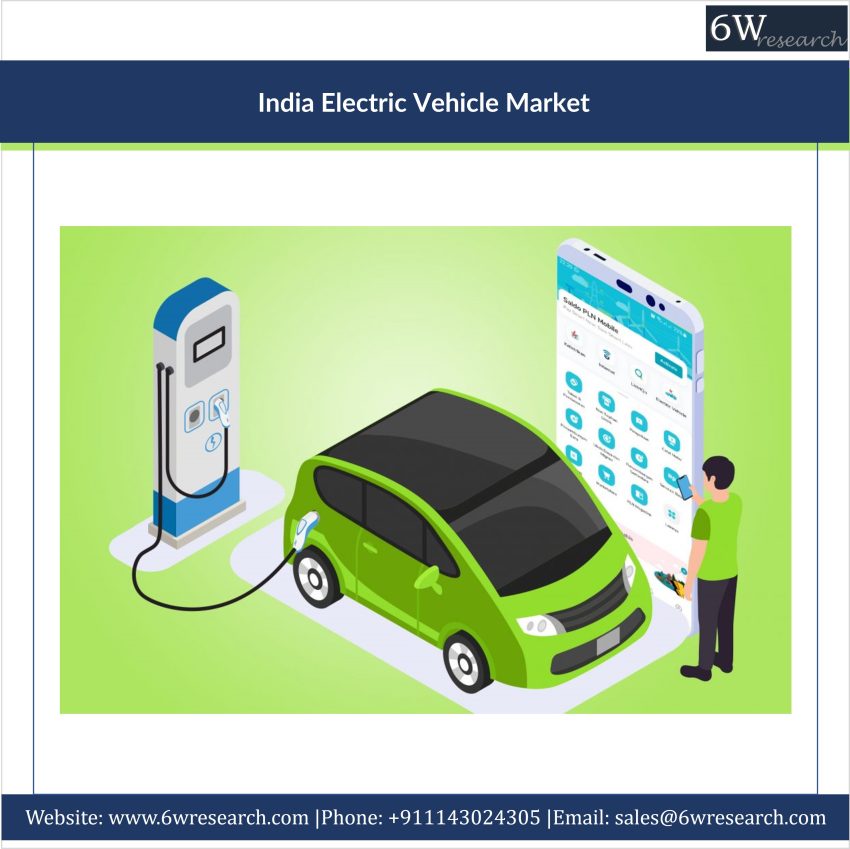India Electric Vehicle Market Outlook (2020-2025)
The India electric vehicle market is expected to experience significant growth over the next five years, driven by several factors such as government initiatives, increasing awareness of environmental issues, and declining battery prices. According to research, the Indian EV market is expected to grow at a CAGR of around XX% during the period 2020-2025.
Here are some key trends and drivers shaping the Indian EV market outlook:
- Government initiatives: The Indian government has been actively promoting the adoption of EVs by offering incentives such as tax exemptions, subsidies, and other benefits. For instance, the Faster Adoption and Manufacturing of Hybrid and Electric Vehicles (FAME) program provides financial support to both manufacturers and buyers of EVs. Additionally, the government has set an ambitious target to achieve XX% electric mobility by 2030, which is expected to drive the demand for EVs in the country.
- Declining battery prices: The cost of batteries, which is a major component of EVs, has been steadily declining over the past few years. This has made EVs more affordable and attractive to consumers. In fact, experts predict that the cost of batteries could fall by as much as XX% in the next few years, which could significantly boost the adoption of EVs in India.
- Increasing awareness of environmental issues: India is one of the most polluted countries in the world, and there is growing concern about the impact of air pollution on public health. This has led to a greater awareness of environmental issues and an increased demand for cleaner modes of transportation. EVs are seen as a sustainable and eco-friendly alternative to traditional petrol/diesel vehicles, which is expected to drive the demand for EVs in India.
- Growing charging infrastructure: One of the major challenges facing the EV market is the lack of charging infrastructure. However, there has been a significant increase in the number of charging stations across the country in recent years, which is expected to make EVs more convenient and accessible to consumers.
- Innovation and technology advancements: The India EV market is witnessing a lot of innovation and technological advancements. Several startups and established players are developing new EV models, battery technologies, and charging solutions, which is expected to further boost the growth of the Indian EV market.
In conclusion, the India electric vehicle market is poised for significant growth over the next few years, driven by a combination of government initiatives, declining battery prices, increasing awareness of environmental issues, growing charging infrastructure, and innovation in technology.
What are the Key Factors Driving the Growth of the Electric Vehicle Market in India
The India electric vehicle market is being driven by several key factors, including:
- Government policies and initiatives: The Indian government has introduced several policies and initiatives to encourage the adoption of EVs in the country. These include tax incentives, subsidies, and the Faster Adoption and Manufacturing of Hybrid and Electric Vehicles (FAME) scheme, which provides financial support to both manufacturers and buyers of EVs. The government’s target of achieving XX% electric mobility by 2030 is also expected to boost the growth of the EV market.
- Rising fuel prices: The price of petrol and diesel has been steadily increasing in India, which has made EVs more attractive to consumers. EVs are seen as a cost-effective and eco-friendly alternative to traditional vehicles, which is driving demand for them.
- Environmental concerns: India is one of the most polluted countries in the world, and there is growing concern about the impact of air pollution on public health. EVs are seen as a cleaner and more sustainable alternative to traditional vehicles, which is driving demand for them.
- Declining battery costs: The cost of batteries, which is a major component of EVs, has been steadily declining over the past few years. This has made EVs more affordable and attractive to consumers.
- Increasing availability of charging infrastructure: One of the major challenges facing the EV market is the lack of charging infrastructure. However, there has been a significant increase in the number of charging stations across the country in recent years, which is making EVs more convenient and accessible to consumers.
- Technological advancements: The Indian EV market is witnessing a lot of innovation and technological advancements. Several startups and established players are developing new EV models, battery technologies, and charging solutions, which are driving the growth of the EV market.
Overall, these factors are driving the growth of the India electric vehicle market and are expected to continue to do so in the coming years.
Read More: Click Here
How will India’s New Government Impact the Electric Vehicle Market?
India’s new government is expected to have a positive impact on the electric vehicle (EV) market. The government has been actively promoting the adoption of EVs as part of its efforts to reduce air pollution and reduce dependence on imported oil. Here are some ways in which the new government could impact the EV market:
- Continued support for EVs: The government is expected to continue its support for EVs by providing incentives such as tax exemptions, subsidies, and other benefits to both manufacturers and buyers. The government’s target of achieving XX% electric mobility by 2030 is also expected to continue to drive the growth of the EV market.
- Increased investment in charging infrastructure: The government is expected to increase its investment in charging infrastructure, which is a key requirement for the growth of the EV market. This could include the installation of more charging stations and the development of new charging technologies.
- Emphasis on domestic manufacturing: The government has been emphasizing the need for domestic manufacturing of EVs and their components. The new government is expected to continue this emphasis and provide incentives to encourage domestic manufacturing and reduce dependence on imported components.
- Introduction of new policies and regulations: The new government could introduce new policies and regulations to further promote the adoption of EVs. For example, the government could introduce new regulations to mandate the use of EVs in certain sectors such as public transportation, or offer incentives to consumers for switching to EVs.
Overall, the new government is expected to have a positive impact on the EV market by continuing to promote and support the adoption of EVs in India.
What are the Main Challenges Facing Indian Electric Vehicles?
Although the India electric vehicle market is growing, there are several challenges that the industry faces. Here are some of the main challenges:
- Lack of charging infrastructure: One of the biggest challenges facing the India electric vehicle market is the lack of charging infrastructure. There are not enough charging stations, and the ones that exist are often not easily accessible. This makes it difficult for EV owners to charge their vehicles while on the go.
- High upfront cost: EVs are generally more expensive than their petrol/diesel counterparts, which makes them less accessible to the average Indian consumer. Although there are subsidies and tax incentives available, they often don’t make up for the high upfront cost.
- Limited range and battery life: The range of EVs in India is still limited, which makes them less suitable for long journeys. In addition, the batteries in EVs tend to have a shorter lifespan than traditional vehicles, which can be a concern for consumers.
- Limited availability: There are not many options available for consumers who want to buy an EV in India. The range of EV models is limited, and they are often not readily available for purchase.
- Infrastructure limitations: India’s infrastructure limitations can also pose a challenge for the EV market. For example, many Indian homes do not have dedicated parking spots, which makes it difficult to install home charging stations.
- Lack of consumer awareness: There is still a lack of consumer awareness and education about EVs in India. Many consumers are not aware of the benefits of EVs or the availability of subsidies and incentives.
Overall, these challenges will need to be addressed for the electric vehicle market in India to continue to grow and become more accessible to the average consumer.




